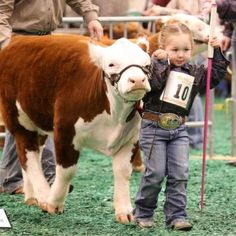A proposal from the Obama administration to prevent kids from doing farm tasks has drawn lots of objection from rural-district members of Congress. Today it’s bring in barbs from farm kids themselves.
The Division of Labor is positioned to put the finishing touches on a rule that would apply child labor regulations to youngsters dealing with family farms, forbidding them from carrying out a checklist of works on their own families’ land.
Under the rules, the majority of kids under 18 can not work  “in the storing, marketing and moving of farm product raw materials.”.
“in the storing, marketing and moving of farm product raw materials.”.
“Prohibited places of employment,” a Department press release read, “would include country grain elevators, grain bins, silos, feed lots, stockyards, livestock exchanges and livestock auctions.”
The new rules, initially suggested August 31 by Labor Assistant Hilda Solis, would also revoke the government’s approval of security training and qualification shown by independent groups like 4-H and FFA, replacing them instead with a 90-hour federal government training course.
Rossie Blinson, a 21-year-old college student from Buis Creek, N.C., informed The Daily Caller that the federal government’s plan will certainly do far more damage compared to good.
“The main concern I have is that it would keep kids from doing 4-H and FFA tasks if they’re not at their parents’ home,” claimed Blinson.
“I began showing sheep when I was four years old. I began with cattle around 8. It’s been extremely important. I learned a lot about responsibility being a farm kid.”.
In Kansas, Cherokee County Farm Bureau president Jeff Clark was out in the field– essentially on a tractor– when TheDC reached him. He claimed if Solis’s regulations are carried out, farming family members’ labor losses from their children will just be part of the trouble.
“What would be even more of an impact,” he said, “is not teaching our youngsters the values of dealing with a farm.”.
The Epa reports that the average age of the American farmer is currently over 50.
“Losing that work ethic — it’s so hard to pick this up later in life,” Clark said. “There’s other ways to learn how to farm, but it’s so hard. You can learn so much more working on the farm when you’re 12, 13, 14 years old.”
John Weber, 19, comprehends. The Minneapolis native grew up in the suburbs and learned about animals working summers on his loved ones’ farm.
He’s now an university Agriculture major.
“I started working on my grandparent’s and uncle’s farms for a couple of weeks in the summer when I was 12,” Weber told TheDC. “I started spending full summers there when I was 13.”
“The work ethic is a huge part of it. It gave me a lot of direction and opportunity in my life. If they do this it will prevent a lot of interest in agriculture. It’s harder to get a 16 year-old interested in farming than a 12 year old.”
Weber is additionally a little businessman. In secondary school, he claimed, he got a funding and acquired a few steers to raise for earnings. “Under these rules,” he described, “I would not be allowed to do that.”.
In February the Labor Department apparently backed away from what many called an unlikely grasp right into farmers’ households, resuming the public comment period on a section of the laws developed to provide parents an exception for their own children.
But the US farmers’ largest trade team is unimpressed.
“American Farm Bureau does not view that as a victory,” said Kristi Boswell, a labor specialist with the American Farm Bureau Federation. “It’s a misconception that they have backed off on the parental exemption.”